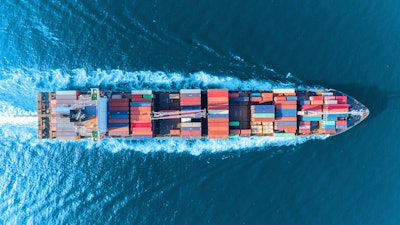
The first quarter of 2022 was plagued by numerous political and economical issues, causing buyer-supplier transactions to drop 7% below the forecast and new orders decreased by 16%, according to Tradeshift's new Index of Global Trade Health. Almost 16% of supplier payments in the past six months were late, double the percentage of late payments prior to the pandemic. While these orders struggle, there is some good that comes from the index, with Mexico and Canada benefiting from the United States near shoring supply chain activity, seeing a spike in orders in the regions.
Per Businesswire:
Tradeshift’s analysis indicates that buyers and suppliers are facing a similar range of pressures in supply chain hubs across the world
- Eurozone: Transactions fell a further 14 points against the expected range, wiping out much of the recovery of the past 18 months. Order volumes dropped by an alarming 28 points as the Ukraine crisis turbocharged commodities prices and caused further disruption across key supply chains.
- U.S.: Momentum dropped by 6 points. US ports braced themselves for fresh congestion as a result of lockdowns in Asia while rising energy costs also hit orders.
- China: Transactions fell by a further 3 points in Q1, the third quarter in succession that activity has fallen against the expected range.
- U.K.: Total transaction growth was a point higher than the forecast range in Q1, but overall growth since the pandemic is still barely half the expected level.
Tradeshift’s data suggests suppliers in countries bordering the US are already benefiting from moves by multinationals to “nearshore” their supply chains. Invoice traffic from Mexican suppliers has risen at 4.1 times the global average over the past year. Canadian supplier invoices were 3.1 times higher than the average.
"Russia’s aggression in Ukraine and the lockdowns in major cities across China are creating a convergence of new and familiar pressures,” says Christian Lanng, CEO and co-founder at Tradeshift. “Building up cash reserves might seem like an act of self-preservation on the part of buyers, but it can quickly become an act of self-harm when suppliers start to struggle. Large organizations need to stop seeing suppliers as a cheap line of credit and start looking at financing options that keep both them and their suppliers solvent in a highly volatile environment.”





















